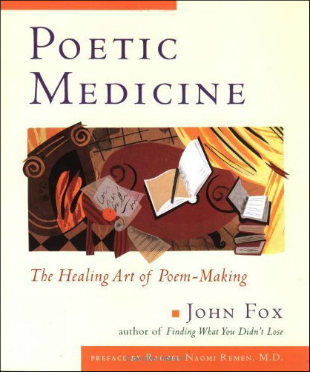"Poetry is a natural medicine; it is like a homeopathic tincture derived from the stuff of life itself — your experience," writes John Fox in this excellent guide to writing as a spiritual practice. The author of Finding What You Didn't Lose teaches, lectures, and presents workshops on the interface between meaning-making and writing poetry. He agrees with James Autry's contention that "poetry gives you permission to feel." This paperback is filled with examples of individuals using verse as a container that expresses their deepest emotions.
The author also concurs with Carolyn Forche's idea that "poetry is the voice of soul, whispering, celebrating, singing even." He has gathered poems by ordinary people that explore the pain and love between parent and child; reflections on intimacy, marriage, and longing; and attitudes about loss, illness, and death. In each case, the poem becomes a way of seeing and naming present, past, and hoped-for experiences of tomorrow.
Fox does a fine job explaining the basics of poem-making and has peppered this text with thought-provoking quotations. One by Annie Dillard ends Poetic Medicine and signifies the author's own respect for the awesome nature of life: "Our life is a faint tracing on the surface of mystery."
